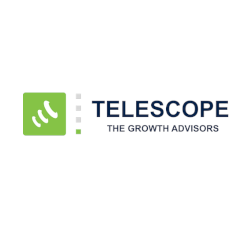The End of Multiple Arbitrage in European Private Equity

In 2019 the M&A market was at a turning point and multiple arbitrage reversed from increase to decrease. The prognosis of company valuations for the next years is even worse. Which bears the question:
Is this the end of multiple arbitrage? And how do Private Equity funds adapt their strategies to these new circumstances?
Market Environment: Positive multiple arbitrage since 2015
Especially in the last five years the phenomenon of multiple arbitrage was highly emphasized. An article in the Finance Magazine, which was published in August 2019, stated that the number of positive multiple arbitrage has risen from 0.3x EBITDA in 2015, to 0.8x EBITDA in 2016 and 1.4x EBITDA in 2017. In 2018 the rate amounted to 2.4x EBITDA. Private Equity companies sold European portfolio houses with a yield multiple on average of 10.9x EBITDA. They had bought them on average of the 8.5 times profit before interest, tax and amortization.
Negative multiple arbitrage from 2021 onwards expected
After these profitable years, the forecast of company valuations for the next years is devastating. The positive multiple effect now threatens to reverse to a negative level in the coming years. Whereas in 2019 the multiple arbitrage was 0.0x EBITDA, it will slip off to a negative trend in 2021-2023. Values of minus 0.3x EBITDA (2021), minus 0.4x EBITDA (2022) and even minus 1.2x EBITDA in 2023 are being expected. With this forecast of negative multiple arbitrage, the environment for Private Equity will change noticeably.
Longer holding periods for companies predicted
Another interesting current development lies in the changes in average holding periods in Private Equity deals. Businesses which were sold in 2006 have been in Private Equity hands for an average of 4.4 years, whereas in 2019 companies were not sold earlier than 5.4 years after acquisition. It’s assumed that the average holding period duration will continue to rise towards six years and above.
What does this imply for European buy-out Private Equity and acquisition strategies?
Telescope Advisory Partners‘ view on forecast of Multiple Arbitrage
These new market realities create significant changes for all parties involved. We currently see four major challenges for buyout funds:
- Limited number of targets in the market that show the characteristics of a typical attractive investment opportunity while the “dry-powder” in existing funds continues reaches an all-time high,
- Resulting in an increased bidder competition as many funds move their investment focus to adjacent sectors and ticket sizes (e.g. the orientation of many mid-cap funds towards the upper small-cap range) in order to find good targets at high prices,
- Changes and disruption across many industries caused by digitalization and automation, eventually creating uncertainty towards the long-term stability of markets,
- And the need for Private Equity owners to create innovation and digitalization strategies for their portfolio firms to overcome the negative multiple arbitrage effects by structurally changing and adapting the existing business models.
In order to meet these challenges, not only must investors change their habits and analytical patterns in evaluating deals, they also have to realize the importance of data in the due diligence process.
Today’s fast changing environments make historic observations and industry experience from the past 20-30 years less valuable compared to a precise understanding of the current developments and future outlooks. A strong data-driven approach to the due diligence with focus on shifts in markets, technology adoption rates, rise of start-ups, customer needs and desires, etc. becomes a key driver for successful acquisitions. Data helps investment managers to better plan for the years to come (reflecting the longer holder periods), understand competitive rivalry and the actual speed of development of some of the younger market participants (“which start-ups could my portfolio company potentially acquire in the future…”) – essential aspects in the acquisition strategy and financial case modelling today.
Consultants and deal advisors must make use of multi-modal research, interview programs, automated data-collection and scraping, online-surveys and face-to-face customer research. The aim must be to obtain the most comprehensive understanding of the company in its environment, which is only possible through intensive engagement with all market participants. All this needs to be part of the commercial assessment of the target and support long-term growth and investment horizons.
by Sascha Vollmerhausen, Senior Manager Transaction Advisory
____________________________________________________________________
About Telescope Advisory Partners
Telescope is a Munich-based data-driven advisory boutique for transaction, due diligence and innovation strategy focused on small- to mid-cap deals. We advise private equity as well corporate M&A clients in their acquisition process with a strong focus on data acquisition to substantially support target identification, acquisitions and growth potential assessments.
Contact
- Simon Fischer, Managing Partner, Mail: simon.fischer@telescope-advisory.com, Phone: +49 1728994627
- Sascha Vollmerhausen, Senior Manager Transaction Advisory, Mail: sascha.vollmerhausen@telescope-advisory.com, Phone: +49 151 2575 8003
(source)

